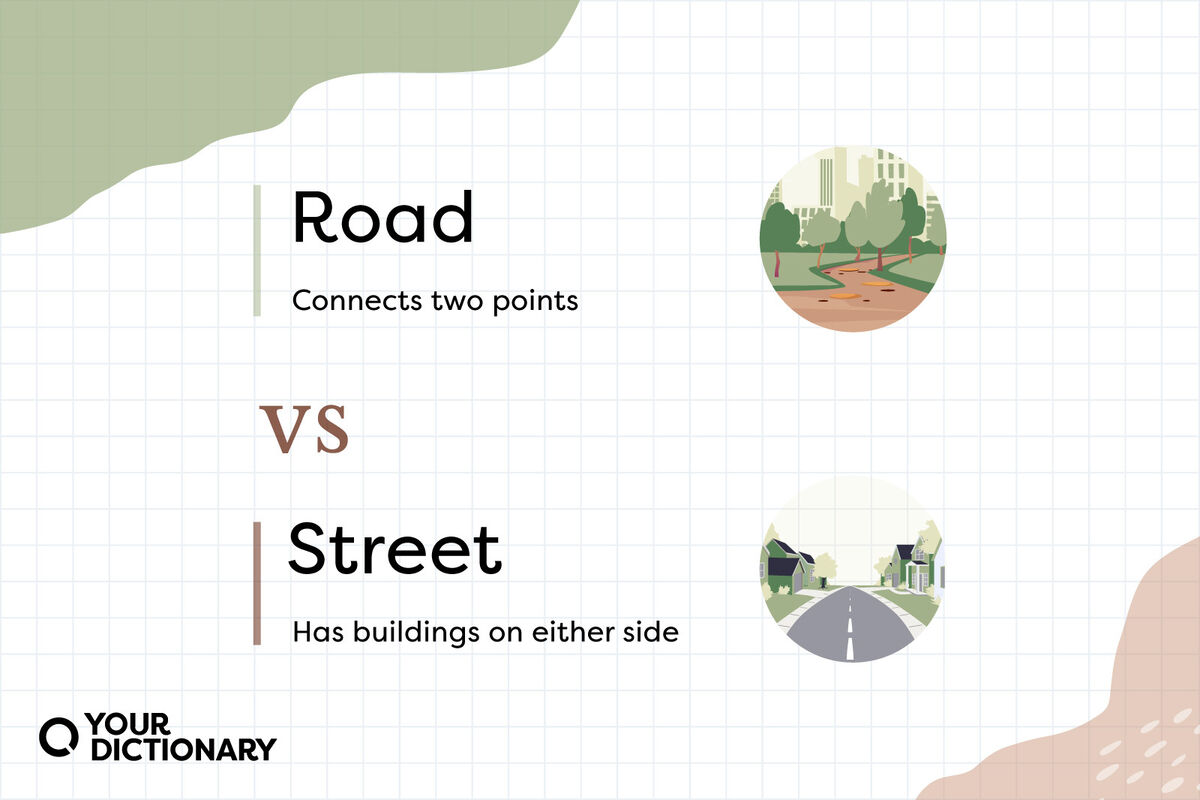
“Take Me Home, Country Streets” just doesn’t have the same ring to it as “Take Me Home, Country Roads.” One reason we prefer “roads” in John Denver’s classic song has to do with internal rhyme, but another reason is the very real difference between streets and roads — and how Denver’s nostalgia for roads says a lot more about his “mountain mama” than you think.
A Road Connects Two Points
Roads are public pathways that connect two points, such as two towns or two neighborhoods. The word road comes from the Old English rād, meaning “horseback journey,” and describes any paved or unpaved path that leads travelers from one place to another. Think about the “Yellow Brick Road” from The Wizard of Oz — it exists only to bring Dorothy from Munchkinland to Oz.
While roads are typically found in rural areas (hence John Denver’s nostalgic affinity for them), they can appear in cities as well. City roads are probably older than the cities themselves, as they were the first ways to cross the area long before it even became a city. Think of the roads in your hometown whose name end in “Road” — they’re likely longer and/or older than the other ways to get around.
‘Road’ Is Only a Noun
You’d only use the word road as a noun when writing it. For example:
- Just follow the main road and you’ll get to town.
- The dirt road became flooded and muddy after the last rain.
- Before the small towns became one big city, they were connected by one long road.
A Street Has Buildings on Either Side
Streets exist within towns and are lined with houses and buildings on either side. Unlike roads, streets are always paved (the word street comes from the Old English strǣt and Latin via strata, meaning “paved road”), and their purpose is to allow people to travel through a town, not connect two places together. Consider the term “street signs,” which regulate the ways traffic moves through a city.
You may find small streets in rural areas, but they’re more common in urban and suburban communities. If a pathway in your hometown is named “Street,” it likely has buildings, sidewalks, medians, lanes, or other elements that a road may or may not have.
‘Street’ Is a Noun and Adjective (and Verb)
When talking about a way to get from here to there, you use street as a noun. For example:
- Look both ways before you cross the street.
- Have they fixed the pothole on Main Street yet?
- The best restaurant in town is just down the street.
You can also use street as an adjective to describe being on the street, or as a verb to mean being kicked out onto the street:
- Street life can be dangerous in big cities. (adjective)
- We listened to the street musicians before entering the museum. (adjective)
- The bartender streeted the teenagers before they ordered a drink. (verb)
These Days, It’s Not Exact
Back in the earlier development days of towns and cities, the difference between roads and streets was more significant. Today, developers don’t use the definitions so literally. A ten-lane street in a new town may be named “Huntington Road” simply because the developer thought road sounded better than street. But it’s still worthwhile to know the fundamental differences between road and street, especially when you’re navigating through a new area.
Other Ways To Get Around
What about those other words that follow the names of your town’s streets and roads? They all have specific definitions too:
- alley - a narrow side road
- avenue - runs perpendicular to streets
- boulevard - a wide street with many lanes and a median
- court - ends in a circle or loop
- cul-de-sac - residential street with a dead end
- drive - a scenic route around a mountain or natural resource
- lane - a narrow road or part of a larger street
- place - leads to a dead end
- way - a side street
Take a One-Way Street to Better Vocabulary
Don’t get lost in the traffic of confusing words. Clear up additional misunderstandings with: